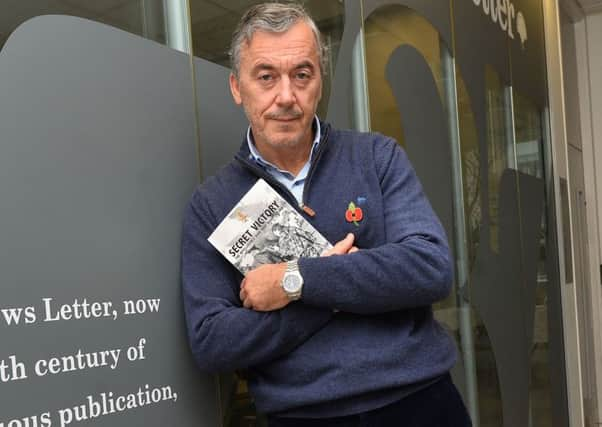William Matchett: By 1987, informers and surveillance were the only options for tackling terrorism


He had no idea I had been a Special Branch handler. Everything he heard in the next few hours had nothing about people like him.
He enthusiastically applauded every speaker. The glorious ‘armed struggle’ and almost 2,000 ‘legitimate killings’ had brought him to this point. Provo nirvana.
Advertisement
Hide AdAdvertisement
Hide AdWe were at a packed gathering of top ‘collusion’ campaigners: academics, lawyers, ‘victims’ groups and others.
The message advocated is simple and persuasive. It goes like this. Bad intelligence people did bad things to prolong the Troubles and must be held to account.
The sub-text is that the bad people hated Catholics and got loyalists to murder them. There is no space for opposed views, no doubt and no Provos.
Taken in by it all, a nice lady I met at a coffee break, a retired teacher, told me: “This is terrible,” and I replied, “Yes, it is.”
Advertisement
Hide AdAdvertisement
Hide AdIt is a snapshot of how things have played out since the Belfast Agreement. The state has put itself on trial. Law firms make lots of money. Local police are unfairly criticised. The big news stories damn intelligence. Former Provos clap from the sideline. And decent people point the finger at decent people.
The ‘collusion’ campaign does not describe my experiences. Murders were not as preventable as popularly claimed and yes, there were some bad cops. But, having worked in nations plagued by police corruption, this was not systemic.
Special Branch was the integrated education of policing.
The people being condemned are the kind that advised Stormont against internment and the Army against a tough approach on ‘Bloody Sunday.’ The majority of them that I know are liberal progressives and many call themselves Irish.
A handler was not the patsy of murderous anti-Catholic policy controlled by London or a senior officer the evil villain stroking a white pussycat, but good people who upheld the rule of law as best they could in difficult times. They were tough, but fair.
Advertisement
Hide AdAdvertisement
Hide AdThere was a secret pact, however, between the Provos and loyalists that prolonged the Troubles. I found this in documents when doing my doctorate. Let me explain.
Normal policing could not cope with the Provos, according to Her Majesty’s Inspectorate of Constabulary (HMIC) in 1987. It showed that, out of five security options only two remained and they fell under intelligence – informers and surveillance.
The first option tried was members of the public giving witness statements to prosecute offenders. This perished with terrorists executing people for ‘touting,’ compounded by nationalist leaders who refused to support the police.
The second was crime squad detectives getting suspects to confess and the third was supergrasses managed by CID. Responsible for ending both was Provo fake news or covert propaganda. Its aim was to attack the sensitivities of a liberal democracy.
Advertisement
Hide AdAdvertisement
Hide AdLies were popularised through respectable third parties. These were the proxies that got the message on the front pages and triggered nationalist and liberal outrage.
Fake news undermined crime squads (claimed cops beat suspects) and supergrasses (claimed a supergrass was a liar motivated by getting a lesser sentence).
For each, the Provos secretly conspired with loyalists, as the security initiatives threatened to make all of them jobless.
Two separate and seemingly independent sides alleged similar things to give the impression that one corroborated the other.
Advertisement
Hide AdAdvertisement
Hide AdIn reading the archives I felt the frustration of chief constable Sir Ken Newman. His warning of more murders if crime squads ended was suppressed by accounts in the mainstream media influenced by fake news.
HMIC understood this. It knew what worked and why.
It strongly endorsed Special Branch, concluding that without it, far more lives would be lost.
Had seasoned detectives in crime squads been given a little more time and a liberal democracy been a little less squeamish, the Troubles would have ended in 1979.
To stay in the murder business, violent loyalist and republican extremists did dirty deals with each other.
Advertisement
Hide AdAdvertisement
Hide AdThis let the Provos pursue their long war and left loyalists more dangerous. Both inflicted great suffering on the people.
My study approach to security in the Troubles was novel. It included the Provos.
• William Matchett is author of Secret Victory: The Intelligence War that Beat the IRA & Adjunct Fellow at the Edward M Kennedy Institute for conflict prevention, Maynooth University, Ireland